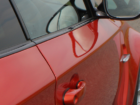Searching for car cover can be confusing and sometimes it can feel like there’s simply too much to choose from. Yet in fact, there are just three types of car insurance – here’s what they are and how to find the best policy for your needs.
What are the different types of car insurance in the UK?
If you drive a car, you must have car insurance by law. There are three types of policy to choose from:
Third party only
This is the minimum level of insurance you can have by law. These policies pay compensation and cover the cost of repairs if you injure other people or damage their property. It will also cover any passengers travelling in your car.
It’s important to know that ‘third party only’, does not cover you or your car. If you cause an accident, you won’t receive any compensation for your own injuries or to fix your vehicle.
Third party, fire and theft
This includes third party only cover, but it will also pay for repairs or a replacement if your car is stolen or damaged by fire. Again, because this is a third party policy it won’t cover the cost of injury to you or repairs to your car.
Comprehensive cover
This includes third party, fire and theft cover but crucially, it will also compensate you for injury and damage to your car – even if an accident is considered your fault.
Comprehensive insurance is the highest level of cover available.
Can I add other features to my car insurance?
Yes, when you’ve chosen the type of policy you want, you can add on other features which will increase the cost. It’s entirely up to you whether you add on extras but doing so means you’ll be covered for a wider range of events and incidents.
When you compare quotes, you’ll often find comprehensive policies include a number of extra features already, so you won’t necessarily need to add more on. Features to look for include:
- Legal expenses cover – pays for professional advice if you need to defend yourself in court or if you want to make a claim against someone else.
- Breakdown cover and courtesy car – offers roadside help or a temporary replacement if your car is being repaired after an accident.
- Windscreen cover – to cover repairs or replacement.
- Personal accident cover – provides compensation if you’re seriously injured.
- No claims bonus protection – allows you to keep your no claims bonus intact so you’ll still get the same level of discount off your premium even after a claim.
How does car insurance work?
Car insurance is there to protect you and other people from financial loss if you’re involved in an accident.
If you do have an accident and injure another driver or damage their property, your insurer will cover the cost of compensating them. If you have comprehensive cover, your insurer will also pay to repair (or replace) your car too.
If your car is damaged in an accident, you should let your insurer know before you take it in for repairs. In most cases, your insurer will need to assess the damage and agree to the repair costs; they may even ask you to use a specific garage or mechanic from a pre-approved list.
To find out more and what to do after an accident, take a look at our guide to Making an Insurance claim.
Which type of car insurance is the cheapest?
In the past, third party only cover was often the cheapest policy available but that’s not always the case now. That’s because insurers found more claims were made by third party policyholders compared to those with comprehensive cover, so premiums were adjusted to reflect that.
With that in mind, comprehensive cover often provides the best value for money but it’s still worth comparing different types of policy to find the most competitive deals.
What affects the cost of car insurance?
Car insurance cost varies considerably and depends on a whole host of factors – for example:
- Age – young drivers pay some of the highest premiums of any age group because under 25s are statistically more likely to be involved in an accident.
- Your car – as a rule, the more powerful or expensive your car, the more you can expect to pay for your insurance.
- Where you live – if you live in a busy, congested city or in an area with higher than average crime rates, you can expect this to be reflected in a higher than average premium.
- Insurance group – all cars fall into one of 50 insurance groups with group one cars being the cheapest to insure.
- Car security – good security can lead to cheaper premiums so if you don’t have a locked garage, consider investing in an immobiliser or approved security alarm.
- Your driving history – convictions and penalty points can mean you pay more for cover than someone with a clean driving record.
- The number of miles you drive – when insurers ask how many miles you cover each year, be as accurate as you can. The more miles you cover, the greater the risk of an accident occurring which can result in higher premiums. If you don’t drive many miles, it’s worth comparing low mileage car insurance quotes as this can help cut the cost even more.
Compare car insurance quotes for the best deals
Of course, the quickest and easiest way to find the best deals, is to compare policies from different insurers.
At mustard.co.uk, you can search for a range of quotes from leading UK insurers simply by filling in our online form.
Comparing what’s on offer helps you find the right policy for your needs, at a price that fits your budget. If you’d prefer to speak to an expert, you can call a friendly member of the team on 0330 022 8790.








